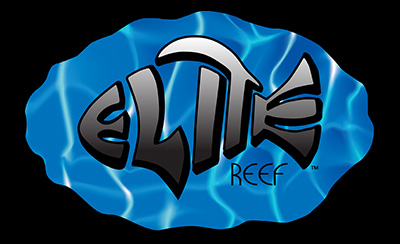Posted by Elite Reef Jan - 3 - 2012 0 Comment

Common Name: Cauliflower Coral Scientific Name: Pocillopora Damicornis Coral Type: Small Polyp Stony Care Level: Medium-High Lighting: Medium-High Flow: Needs higher flow to stay clear of debris Care Notes: Pocillopora are on of the easiest and fastest growing of all SPS corals, but they still require relatively high light, high flow and stable conditions Description: Pocillopora forms in short thick branches with small polyps covering the entire Read More …
Posted by Elite Reef Jan - 3 - 2012 0 Comment

Common Name: Monti Cap Scientific Name: Montipora Capricornis Coral Type: Small Polyp Stony Care Level: Medium Lighting: Medium-High Flow: Needs high flow Care Notes: Monti are one of the easiest of SPS corals to keep but still need high light and flow Description: Montipora capricornis forms in large flat round plates. It can be found in several different colors Other Notes: Montis are the most susceptible coral to bleaching Read More …
Posted by Elite Reef Jan - 3 - 2012 0 Comment

Common Name: Bottlebrush Acropora Scientific Name: Acropora Echinata, Acropora Carduus Coral Type: Small Polyp Stony Care Level: High Lighting: High Flow: Must have high flow Care Notes: As with most SPS corals echinata requires high light, high flow and excellent water conditions. Description: Bottlebrush acroporas for in tight colonies full of tiny fragile branches. They have some of the brightest coloration of all SPS corals.
Posted by Elite Reef Jan - 3 - 2012 0 Comment

Common Name: Cup Coral Scientific Name: Turbinaria Coral Type: Large Polyp Stony Care Level: Medium Lighting: Medium Flow: Very tolerant of different flow patterns Care Notes: Cup corals are fairly easy to care for and will thrive mostly on light. Some additional feeding of meaty foods will help to accelerate growth. Description: Cup corals grow a large bowl shaped calcified skeleton which Read More …
Posted by Elite Reef Jan - 3 - 2012 0 Comment

Common Name: Trac Brain, Wellsophyllia Brain Scientific Name: Trachyphyllia Geoffroyi Coral Type: Large Polyp Stony Care Level: Medium-Low Lighting: Low-medium Flow: Will extend its flesh more in lower flow, but can tolerate relatively high flow Care Notes: Trachyphyllia brains are among the easiest of LPS corals to care for. They do not need large amounts of light or flow, and are primarily photosynthetic, so do not Read More …
Posted by Elite Reef Jan - 3 - 2012 0 Comment

Common Name: Scoly Scientific Name: Scolymia Coral Type: Large Polyp Stony Care Level: Medium-High Lighting: Medium Flow: Will extend its flesh more in lower flow, but can tolerate relatively high flow Care Notes: Scolymias are one of the harder to care for LPS species. They need stable conditions to do well Description: Scolymias are typically a round concaved disc with a central mouth. Intense Read More …
Posted by Elite Reef Jan - 3 - 2012 0 Comment

Common Name: Bubble Coral Scientific Name: Plerogyra Simplex Coral Type: Large Polyp Stony Care Level: Medium Lighting: Medium Flow: Needs lower flow so that it can extend its flesh without being damaged Care Notes: Bubble Coral demands highly stable alkalinity and lower flow to survive Description: Bubble coral looks just like it sounds. It has large bubbles of flesh with tentacles between Other Read More …
Posted by Elite Reef Jan - 3 - 2012 0 Comment

Common Name: Lobed Brain, Open Brain Scientific Name: Lobophyllia Spp. Coral Type: Large polyp stony Care Level: Medium Lighting: Medium-high Flow: Tolerant of all flow conditions Care Notes: Lobos are among the easiest of LPS corals. They are extremely aggressive though so care must be taken to give them space. Description: Lobos form in branching colonies of large fleshy mouths. When feeding the Read More …
Posted by Elite Reef Jan - 3 - 2012 0 Comment

Common Name: Torch Coral, Pom-pom Coral Scientific Name: Euphyllia Gabrescens Coral Type: Large Polyp Stony Care Level: Medium Lighting: Medium Flow: Will extend its flesh more in lower flow, but can tolerate relatively high flow Care Notes: Torch corals are on of the harder of the euphyllia family to keep and must be kept in water with stable alkalinity. Description: Torch coral forms in large stony branching colonies with Read More …
Posted by Elite Reef Jan - 3 - 2012 0 Comment

Common Name: Duncan Coral, Whisker Coral, Daisy Coral Scientific Name: Duncanopsammia Axifuga Coral Type: Large Polyp Stony Care Level: Medium Lighting: Medium to high Flow: Very tolerant of differing flow patterns Care Notes: As with all LPS corals attention to alkalinity is very important. Description: Duncan corals form in branching colonies of small mouths surrounded by feeding tentacles. Colors range from greens Read More …







